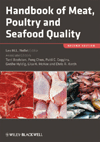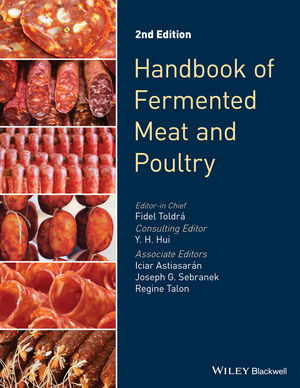The National Chicken Council recently announced findings from a survey of consumer attitudes about chicken and plant-based “chicken” alternatives, and the results suggest a majority of consumers (both those who eat chicken as well as vegans and vegetarians) favor clearer product labeling and separate in-store placement for plant-based meat alternative products to prevent confusion.
National Chicken Council Vice President of Communications Tom Super says labeling plant-based proteins as “chicken” is misbranding and is in violation of federal food labeling guidance. The following is a Q&A with Super.
The National Provisioner: What do current regulatory requirements for labeling say about non-meat products co-opting the word “chicken”?
Tom Super: We believe that labeling plant-based proteins as “chicken” renders the product misbranded and in violation of the Federal Food Drug and Cosmetic Act (FDCA). NCC is concerned that plant-based proteins marketed as “chicken” are misbranded under the FDCA because their labeling misleadingly indicates that the products contain real chicken meat and that the products are nutritionally comparable to real chicken meat. In fact, neither is true.
Under FDA’s longstanding labeling regulations, products without an established standard of identity must be labeled using the “common or usual name of the food; or, in the absence thereof … an appropriately descriptive term, or when the nature of the food is obvious, a fanciful name commonly used by the public for such food.” A common or usual name must “accurately identify or describe, in as simple and direct terms as possible, the basic nature of the food or its characterizing properties or ingredients,” and it cannot be “confusingly similar” to other foods.
Calling a plant-based protein matrix “chicken” directly contradicts FDA’s product naming regulations. “Chicken” is not an “appropriately descriptive” term for plant-based products, and “chicken” certainly does not “accurately identify or describe, in as simple and direct terms as possible, the basic nature” of a complex matrix of plant proteins, binders, texturizers and flavor components.
“Chicken” is, however, “confusingly similar” to the name of another, very different product that American consumers are inherently familiar with: the meat from an actual chicken. NCC therefore does not believe that the term “chicken” is ever appropriate to describe a plant-based protein product formulated to imitate real chicken meat. In fact, to the extent plant-based protein products are labeled with reference to chicken, they appear to be “imitation” products and must labeled as such as under FDA policy.
A food that may be used interchangeably with a product it resembles but that is “nutritionally inferior” must be labeled in accordance with FDA’s “imitation” policy. Nutritional inferiority includes “any reduction in the content of an essential nutrient that is present in a measurable amount.” A food is misbranded as an “imitation” “unless its label bears, in type of uniform size and prominence, the word ‘imitation’ and, immediately thereafter, the name of the food imitated.” Plant-based protein alternatives marketed as “chicken” are being overtly positioned to be used interchangeably with real chicken meat, and many of the products on the market are nutritionally inferior to real chicken meat.
If these products are positioned as “chicken,” FDA regulations would call for them to also be labeled “imitation.” FDA’s regulations governing product naming are longstanding and well established. It is imperative that FDA continue to see to it that they are followed.
We also believe that meatless products purporting to be “chicken” violate USDA FSIS policy and the Poultry Products Inspection Act. FSIS likewise has long overseen a well-established set of regulations and policies for how poultry products are supposed to be labeled, and the Poultry Products Inspection Act (PPIA) likewise prohibits the labeling of products in a false or misleading manner as well as the marketing of one food under the name of another.
FSIS regulations identify the types of products that are considered real chicken meat. Plant-based proteins do not fit into any of these categories. Likewise, a number of food standards established in regulation or the FSIS Food Standards and Labeling Policy Book include the term “chicken” in the product name and require that the product contain at least a specified minimum quantity of real chicken meat. These policies and standards reinforce that consumers have a clear expectation that a product named “chicken” contains real chicken meat.
FSIS has also long taken the position that a product represented as containing poultry is treated as a product of the poultry industry. For example, FSIS exempts from its jurisdiction certain products containing small amounts of meat or poultry, so long as the product is not “represented as a meat food or poultry product.”
More specifically, “A product is deemed as representing a meat food or poultry product if a term representing meat or poultry is used on labeling, e.g., in the product name, without appropriate qualification.”
Adding a directly contradictory term to the name is not “appropriate qualification.” NCC is aware that FSIS has taken action against meatless products that are represented as products of the meat or poultry industries to avoid consumer confusion and to protect established standards, and it is important that FSIS takes action when appropriate to reinforce its and FDA’s labeling regulations.
The National Provisioner: What steps has the National Chicken Council urged its members to take to bring clarity to the proper use of the word “chicken” on packaging?
Tom Super: NCC has recently written to the leadership of both the FDA and USDA FSIS to urge the agencies to issue clearer guidance defining how to name these plant-based products and prioritize enforcement for products marketed in a misleading manner. We are also working with members of Congress on possible solutions.
The National Provisioner: What consumer-facing efforts has the Council and/or chicken marketers taken to educate shoppers about the issue?
Tom Super: Our first step on consumer facing efforts has been to commission the survey about consumer perceptions on the labeling of real chicken vs. fake chicken, and to use those results as the basis for our letter to FDA and USDA and a social media campaign aiming to educate shoppers.
The National Provisioner: What steps can retailers take in their merchandising to help ensure shoppers don’t confuse chicken products with plant-based “chicken” products?
Tom Super: The first step they can do is to have these products in separate sections in the grocery store and not in the same case. According to our survey, at least three in five Americans (62% of chicken consumers along with 80% of vegetarians and vegans) feel real chicken and plant-based “chicken” should have their own distinct grocery sections at the store to help eliminate product confusion.









